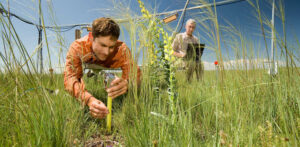Rutgers Office of Continuing Professional Education has announced an in-person session of the Private Applicator exam, exclusively for our farmers and growers, to be hosted on Wednesday, April 6 at the Burlington County office of Rutgers Cooperative Extension at 2 Academy Drive, Westampton, NJ 08060.
Each session (10:00 am and 12:30 pm) can accommodate up to 30 people, so if the demand is there, 2 sessions will be held that day. Only private applicator exams will be offered for this in-person testing event.
All examinees must be preregistered by the end of the day Monday, April 4 (details below), no walk-ins are allowed and no refunds will be given. If you register for April 6 and do not come to take the exam you will have to re-register and pay again.
All examinees must be registered ahead of time in PACER. Growers should register for an online exam, pay the $50 fee online, and then contact Jill Sullivan by phone at 848-932-7443 or by email by the end of the day on Monday, April 4 to say they want to take the exam in-person. Jill will provide registered growers with the time of the exam and location. This will also allow Jill time to create the exam answer sheets for Wednesday, April 6 and create a registration list.
For those who need help registering in PACER, there will be a second date announced for later in April, again at the Burlington County RCE office. Jill has created a registration document that you can print out, complete, and fax to Jill at 732-932-1187 or complete the information requested in the MSWord document and then email the completed form to Jill at pacer@njaes.rutgers.edu and she will register the grower and then call for the sensitive information (SSN and credit card information). The registration form is currently available through your local RCE office.
Thanks to Melissa Bravo, RCE of Salem County, for inquiring for an in-person test opportunity for our growers, to OCPE for accommodating this request and offering this opportunity for our growers, and to Burlington County RCE for hosting these exams.

